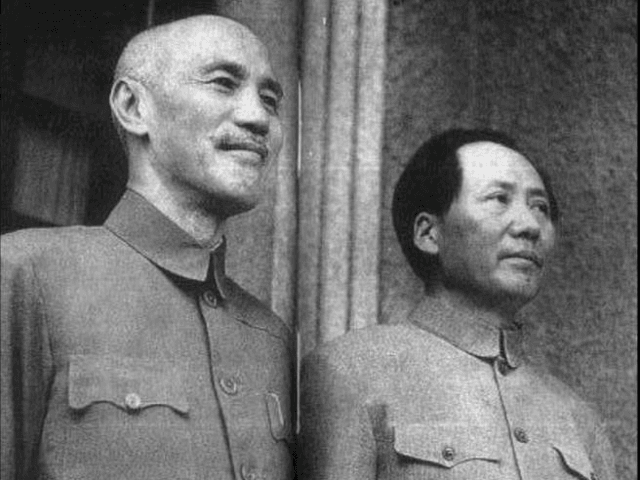Chinese censors scuttled the premiere of a lavish new historical epic called The Eight Hundred on Wednesday, apparently because they felt it glorified the Chinese Nationalist Party, which would go on to establish the Republic of China after the events depicted in the film.
The Chinese Nationalist Party is still in business and is more widely known by its Chinese name “Kuomintang” today, while the Republic of China is the government of Taiwan. Contemporary members of the Kuomintang might be a little wounded by the heavy-handed censorship of their foundational legend since they are the more China-friendly of Taiwan’s major parties today.
The Eight Hundred tells a story compared by Philippine news site Rappler to Christopher Nolan’s 2017 blockbuster Dunkirk, chronicling a brutal 1937 clash between the invading forces of Imperial Japan and Chinese troops defending the city of Shanghai.
The Battle of Shanghai was noted for the remarkably determined resistance of the outnumbered, outgunned Chinese troops, who were able to hold out for three months against much more advanced Japanese artillery, ships, and aircraft.
The Chinese suffered horrific casualties – in part due to military tactics that were appallingly wasteful of human life – but were able to preserve crucial industrial resources, delay Japan’s advance into China, inflict far more casualties upon the Japanese than they were expecting, and create a morale-boosting legend akin to the “300” Spartans fighting at Thermopylae.
The Battle of Shanghai seemed ripe for a big-budget movie adaptation, especially at a time when the Communist Party is doing all it can to whip up nationalist fervor. Unfortunately for the filmmakers, Shanghai was defended by the wrong brand of Nationalists in 1937. The general in charge of China’s troops was Chiang Kai-shek, and his forces eventually became the losing side in China’s civil war, after which they decamped to the island of Taiwan.
The current leadership in Beijing is not interested in extolling the courage and determination of Taiwan’s founders in standing up to much more powerful force of seagoing tyrannical invaders, especially since Communist China will be celebrating the 70th anniversary of Mao Zedong’s defeat of the Kuomintang in October.
It seems a little odd these uncomfortable echoes of history did not occur to the Huayi Brothers Media Corporation during the ten years it took to film The Eight Hundred, but according to Rappler they received a stern reminder from the Communist Party right before the film was set to premiere in Shanghai:
After consultation between the production team and other parties, the July 5 premiere was cancelled and will not be released this summer, according to a statement posted on Tuesday, June 25 on the film’s Weibo account, a Twitter-like platform.
“The new release date will be announced at a later time,” the statement said, without explaining the reasons behind the decision.
The movie had already been abruptly yanked from the Shanghai International Film Festival earlier this month due to “technical issues” — a term often used as a euphemism for censorship.
[…] Five days before the film was removed from the festival, the Chinese Red Culture Research Association held an academic seminar on filmmaking in which the storyline of The Eight Hundred was criticized because it glorifies the heroic role of Chinese Nationalist Party (Kuomintang).
“It makes use of fragments of history to cover up the essence of history. It seriously violates the historical facts of the Kuomintang’s resistance,” the report added. “That should not be encouraged.”
The Eight Hundred had a budget of over $80 million dollars, which is gigantic for the Chinese film industry, and would have been the first Chinese production filmed entirely in digital IMAX. No expense was spared on anything except hiring someone to check with the paranoid tyrants of Beijing to see if they had any objections to a big-budget movie celebrating the courage of people they consider traitors. Shares of the Huayi company tumbled after the premiere was canceled.
The production included some top Hollywood visual effects talent, including veterans of the X-Men and Matrix film series. The producers hoped The Eight Hundred might break through as an international hit, a degree of success that has proved elusive for even the most popular movies in China. For instance, the third highest-grossing film of 2019 worldwide was a Chinese science-fiction epic called The Wandering Earth that went straight to Netflix instead of getting an American theatrical release.
Very few Chinese seem to be buying the excuse about “technical issues,” as social media lit up with disappointed film fans who clearly understood the political issue is that “the eight hundred heroes who fought the Japanese served the Kuomintang army and not the Communist Party’s army,” as one of them put it.
“The whole world is moving forward, while Chinese cinema is heading backward,” another user on Weibo lamented.
Variety reported Chinese censors have gone berserk in recent weeks, perhaps in response to pressures such as the Tiananmen Square 30th anniversary, massive protests in Hong Kong, the impending anniversary of the PRC’s founding, and the ongoing trade war with the United States.
Some other notable censorship escapades involve forcing movie producers to change titles and taglines that even vaguely imply life in Communist Party chief Xi Jinping’s China is anything less than paradise on earth. For example, one film was renamed from A Flowing River of Sadness to The Flow of Beautiful Times.

COMMENTS
Please let us know if you're having issues with commenting.